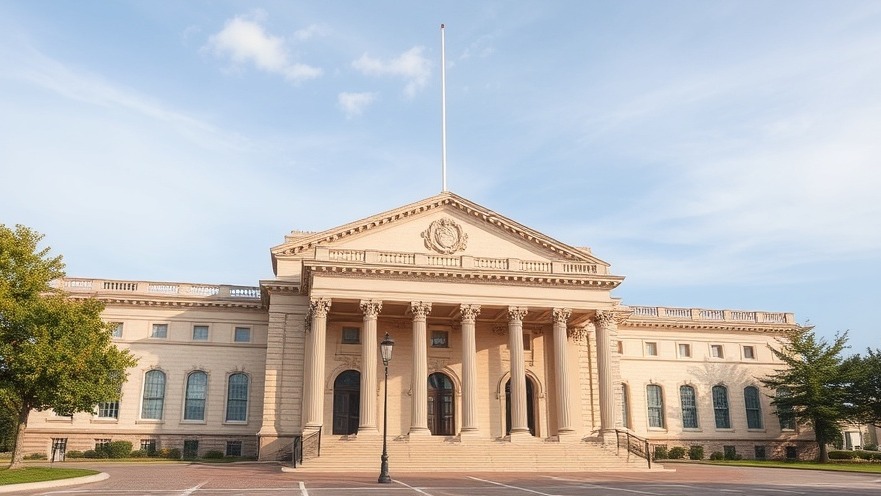
Understanding the Court's Decision on Birthright Citizenship
A recent ruling by an appeals court has ignited discussions across various sectors of society regarding birthright citizenship in the United States. The court found that former President Donald Trump's attempts to revoke birthright citizenship were unconstitutional, marking a significant moment in ongoing debates about immigration policy and rights in America.
Historical Context: The Origins of Birthright Citizenship
Birthright citizenship, which grants citizenship to anyone born on U.S. soil, is rooted in the 14th Amendment of the Constitution. Ratified in 1868, this amendment was instrumental in ensuring that former slaves and their descendants could claim American citizenship. Given the historical backdrop of civil rights, the appeals court's decision is a reminder of the ongoing importance of defining citizenship in a nation that prides itself on diversity and inclusion.
The Implications of the Ruling
This legal ruling not only bolsters the constitutional protections afforded by the 14th Amendment but also highlights the broader implications it has for immigration policy. Many analysts believe that the decision could influence future legislative measures, encouraging a more inclusive approach towards immigrants and their families. Critics of Trump’s initiative argue that stripping away birthright citizenship could set a precedent that undermines fundamental civil liberties.
A Broader Perspective: Looking at Immigration Policy
The birthright citizenship debate is intertwined with larger conversations about immigration reform in the United States. Recent surveys indicate that a significant portion of the American public, irrespective of political affiliation, supports maintaining birthright citizenship. This suggests a disconnect between the political elite's rhetoric and public sentiment, which could shape future elections and policies.
Public Reactions: A Nation Divided
Reactions to the court's ruling have been polarized. Advocates for immigration rights celebrated the decision, viewing it as a pivotal affirmation of inclusivity. Meanwhile, some opponents argue that the ruling inhibits necessary reforms to address illegal immigration. This division reflects a wider debate within the country on how to balance national security with humanitarian obligations. Understanding the public's perspective on these issues is essential for anyone engaged in civic dialogue.
Future Predictions: What Lies Ahead for Immigration
The ruling opens the door for potential legislative initiatives aimed at reinforcing birthright citizenship alongside broader immigration reforms. Analysts predict discussions around immigration will likely intensify as the 2024 election approaches, with candidates being forced to clarify their positions on such a critical issue. The outcome of these discussions could significantly impact the fabric of American society and its demographic future.
Conclusion: Emphasizing the Importance of Civic Engagement
As the country navigates these tumultuous discussions, it is crucial for citizens to stay informed and engaged. The appeals court's decision serves as a reminder of the delicate balance between maintaining order and upholding the values that define the United States. Now more than ever, individuals across the nation should voice their opinions and advocate for policies that reflect the principles of justice and equality voiced in our Constitution.
For those looking to deepen their understanding of U.S. news, particularly regarding immigration and citizenship, consider engaging with local community groups or forums. Stay updated with national news to remain a well-informed citizen, ready to participate actively in shaping the future of our shared society.
 Add Element
Add Element  Add Row
Add Row 



Write A Comment